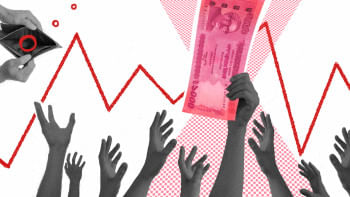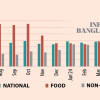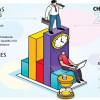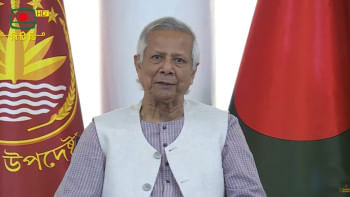How do we protect the worst victims of inflation?

For more than two years, Bangladesh has been experiencing high inflation. The average inflation in FY2022-23 was as high as 9.07 percent, compared to 5.56 percent in FY2020-21. The point-to-point inflation reached 9.81 percent in March 2024 compared to 5.47 percent in March 2021. One may recall that the pre-pandemic inflation rate was 5.48 percent in FY2018-19, according to the Bangladesh Bureau of Statistics (BBS). Food and energy prices in the international market were high throughout 2021, which led to consumer price inflation around the world. Bangladesh has been facing similar challenges as well. However, the prices in the international market came down in 2023, which is not reflected in the domestic prices here. Though several developed and developing economies, and even a troubled economy such as Sri Lanka, could manage to tame inflation through appropriate policy measures, Bangladesh is still caught in the high inflationary waves.
The reason for continued high consumer prices in the country despite prices dropping in the international market is a combination of policy and institutional failure. The lack of a truly independent monetary policy by the Bangladesh Bank has contributed to the uncontrolled inflation. The central bank imposed an interest rate cap on lending and deposit rates in April 2020 as part of its expansionary monetary policy to overcome economic challenges due to the pandemic. At the beginning of FY2023-24, the interest rate cap was withdrawn, and the variable six-month average rate of treasury bill (SMART) reference rate was implemented in an attempt to rein in inflation by rate hikes. However, the outcome of such a monetary policy is not observed yet. Indeed, this move was too little, too late. Besides, no policy can function in isolation. The associated policy responses and measures such as restrained fiscal policy, breaking of market distortionary steps by a small group of market players, and market monitoring must be pursued in tandem with appropriate monetary policy.
The spike in inflation has affected people from different socio-economic strata differently. Poor and low-income households are the worst victims of price hikes. They are struggling to deal with high food and fuel prices as their incomes have not increased to make up for the loss of their purchasing power. During the Covid pandemic, many lost their jobs due to shrinking economic activities. Once they returned to work, many had to compromise on their wages and salaries as most businesses had to recover from the pandemic-induced economic shocks. With high prices, the real income of the salaried people and micro- and small businesses has shrunk. High inflation has reduced people's disposable income too.
High food inflation means food insecurity in poor and vulnerable households as they are forced to compromise on their diet. As it happens, food inflation is mostly higher than the average inflation. For example, food inflation in March 2024 was 9.87 percent and non-food inflation was 9.64 percent, per BBS data. While this is lower than the 12.56 percent food inflation in October 2023, the risk of food insecurity remains.
Besides, the average food inflation often does not reflect the actual price increase of some commodities. The daily price records of essentials by the Trading Corporation of Bangladesh (TCB) indicate that prices of some essential commodities have increased by a much higher rate than the average inflation. High energy prices also raise food prices as food production costs go up through high fuel, fertiliser, and transport costs. Therefore, high inflation comes with the menace of rising poverty and food insecurity. With limited income, poor families do not have any options to change their food and essential expenditure, since they are already in the lowest category of consumption pattern. Additionally, they almost have no financial options such as savings, loan facilities from banks or any other financial instruments.
Concerns of increased poverty due to high inflation and weak private consumption have been raised by the World Bank in its recent macro poverty outlook. It has projected that between FY2022-23 and FY2023-24, about five lakh people will fall into extreme poverty—defined as a person living below an income of $2.15 a day. The report also indicates that moderate poverty, defined as people living below $3.65 a day, will increase from 29.3 percent in FY2022-23 to 29.4 percent in FY2023-24, which will be equivalent to 8.4 lakh people.
Along with high poverty, high prices also lead to inequality within and among countries. Inequality of all types—income, consumption and wealth—is high around the world, and Bangladesh is no exception, even though the country has been experiencing high growth over the last decade, barring periods during and after the pandemic. Though the World Bank report forecast inequality to remain stagnant, it is already high and increasing over time. The Gini coefficient, which measures inequality on a scale of 0 to 1, is increasing over time despite increase in per capita income. According to the Household Income and Expenditure Survey (HIES) 2022, Bangladesh has witnessed the rise of Gini coefficient to 0.499 in 2022 from 0.458 in 2010.
High inflationary pressure on the poor, low-income and even lower-middle-income families can only accentuate inequality in the medium term. This is worrying, because not too long ago, the pandemic created new poor who are still fighting to come out of their economic distress. They are being pushed back further during the period of high prices. Unless tackled, this could fuel the existing social tensions due to limited and unequal opportunities, increased youth unemployment, and high-level corruption among the powerful people.
The persistent high inflationary pressure is here to stay for some time, given the poor response of policy measures taken by the central bank so far. Therefore, policymakers should adopt strong social protection measures for the poor and low-income families against the perils of rising prices. Social safety net programmes such as direct cash transfers and increasing availability of essential commodities at affordable prices for the poor and low-income groups are effective measures to provide a cushion to them on an immediate basis. However, these programmes must be adequate, well-targeted and efficiently managed by avoiding wastage and corruption to cover the genuinely affected people under the programme. However, in the short to medium terms, prudent fiscal management and sound monetary policy are critical to curb inflationary pressure and protect the erosion of purchasing power of the poor, low- and lower-middle-income households.
Dr Fahmida Khatun is executive director at the Centre for Policy Dialogue (CPD) and non-resident senior fellow of the Atlantic Council.
Views expressed in this article are the author's own.
Follow The Daily Star Opinion on Facebook for the latest opinions, commentaries and analyses by experts and professionals. To contribute your article or letter to The Daily Star Opinion, see our guidelines for submission.


 For all latest news, follow The Daily Star's Google News channel.
For all latest news, follow The Daily Star's Google News channel. 










Comments